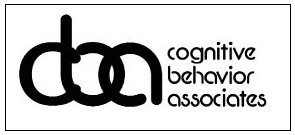What is Social Anxiety?
Social anxiety is very common and affects approximately 7% of people. That is a lot of people who are worried about what other people think about them.They are concerned that other people may negatively and harshly judge them. Social anxiety typically appears in many different social situations and can be so terrifying for the person experiencing the anxiety, that it controls and limits life experiences. Fortunately, Cognitive Behavior Therapy for Social Anxiety (CPT-SA) is very effective in reducing and eliminating social anxiety in a relatively short period of time.
Fear from Social Anxiety
The person suffering from social anxiety is typically very fearful that they will do something in a social situation that will cause themselves great shame and embarrassment. This fear can make someone fearful of eating in public, attending social events and meeting new people, working in a setting that might require giving presentations even to a small group of co-workers, or even going out with a friend if other people may be involved. Someone with anxiety will typically not go to any event without someone going with them. The fear of being humiliated in some way is so intense, it can be paralyzing and devastating to self-confidence and self-esteem. Often social anxiety contributes to depression and other forms of anxiety, making the individual feel even more vulnerable around other people. This overwhelming fear of being judged may make it difficult to have a conversation (even on the phone), meet new people, make friends outside the family, date, eat in public, or even use a public restroom if someone else is in there.
Panic Attacks
In addition to the social anxiety, some people experience such high levels of anxiety that the anxiety can set off panic attacks. Panic attacks involve significantly unpleasant physical symptoms that can make an individual wonder if they are going crazy, having a heart attack, or will do something humiliating. These fears associated with panic attacks reinforce the social anxiety, and the two forms of anxiety reinforce each other. The intense fear associated with a panic attack can last for 20 minutes, and there is often a longer period of anxiety following the attack that creates a resistance to being in any similar situation in which the panic attack occurred.
Since social anxiety and panic attacks are so disruptive and isolating, some people may experience depression. This results from the self-imposed isolation, diminished confidence and lowered self-esteem. They may even have despair and hopelessness about how to go about gaining control of life again. While this is not the cycle that everyone with social anxiety experiences, it is important to understand that there is help. While anxiety and panic are terrifying to the person experiencing the anxiety, social anxiety is relatively easy to treat and will not take years to overcome.
Social Anxiety Treatment
CPT-SA teaches skills that allows the anxious person to identify the thoughts (cognitions), emotions (feelings), and behaviors (what we do) that contribute to the anxiety.
- Thoughts (cognitions) influence our emotions and behaviors.
- Behaviors (what we do) influence our thoughts and emotions.
- Emotions (what we feel) influence our thoughts and behaviors.
CPT-SA helps you identify your thoughts and the emotions associated with those thoughts. Once you can identify your thoughts and emotions, it is time for the behavior change. While many of our fears do not come true, sometimes they do. Everyone has been on the receiving end of being or feeling judged, rejected, or ridiculed. CPT-SA also teaches how to cope from a position of strength and not fear when we are not treated well, or we are embarrassed. The better able we are to cope with a negative social experience, the stronger we feel, with greater confidence and self-esteem. The greater our confidence and self-esteem, the less likely we are to experience anxiety.
CBT for Social Anxiety
Some people are afraid to try therapy as they have heard they will have to do things that cause them anxiety. At Cognitive Behavior Associates Beverly Hills, each therapy program is specifically designed for the person and with the collaboration of the person experiencing the anxiety. Initially, as you are learning to identify your thoughts, emotions and beliefs, you will be observing situations and challenging your anxious thoughts and feelings. With each growth in strength, confidence and self-esteem, behavior and fear will typically change naturally.
Click here for more info on the National Institute of Mental Health's website.

